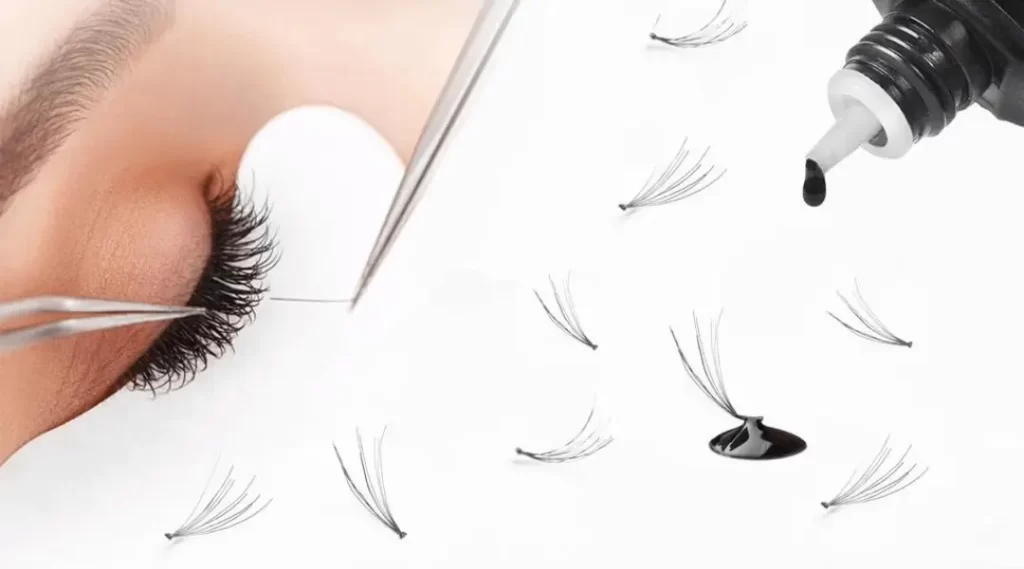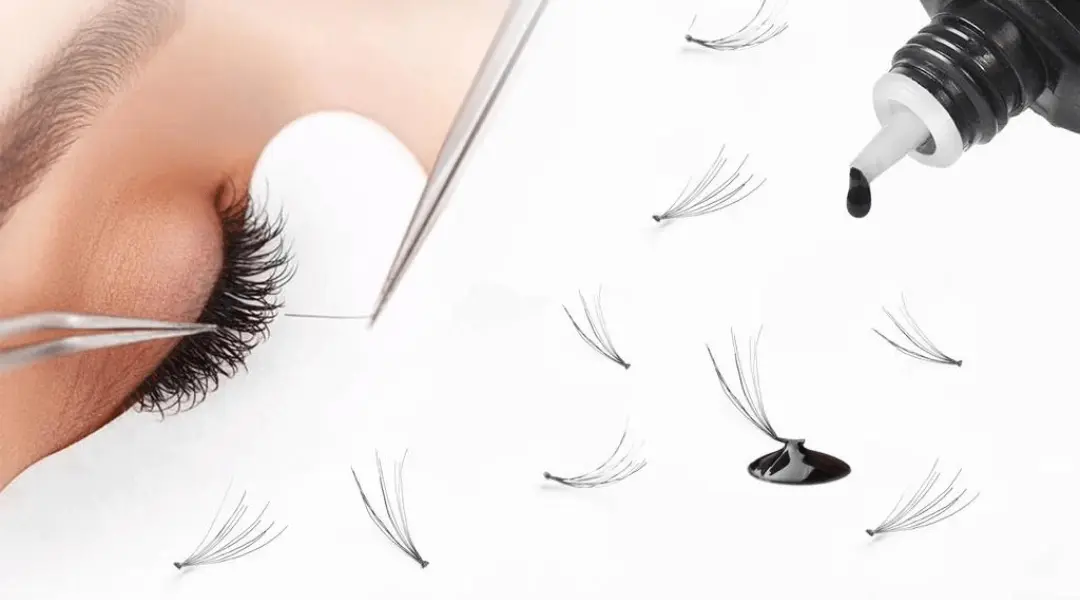Can Glue Cause Allergic Reaction? Glue is a common household item that is used for various purposes like sealing, bonding, and fixing. While glue is generally safe to use, some people may develop an allergic reaction when exposed to it.
In fact, studies show that glue allergy is becoming more prevalent in recent years due to the increased use of adhesives in various industries.
Let’s dive into this peculiar topic and uncover the taste, health risks, and even unique uses of glue beyond its intended purpose.
Allergic reactions occur when the immune system overreacts to a foreign substance or allergen. When this happens, the body produces antibodies called immunoglobulin E (IgE) which trigger the release of histamine and other chemicals that cause inflammation and allergy symptoms.
Can Glue Cause Allergic Reaction?

Glue allergy can be caused by exposure to certain chemicals found in adhesives such as formaldehyde, epoxy resin, cyanoacrylate, and acrylic acid.
In this article, we will explore Can Glue Cause Allergic Reaction? Their symptoms and diagnosis, treatment options available, as well as how to prevent them from occurring.
Key Takeaways
- Exposure to certain chemicals found in adhesives such as formaldehyde, epoxy resin, cyanoacrylate, and acrylic acid can cause glue allergies.
- Symptoms of glue allergy include skin reactions, respiratory symptoms, and eye irritation, which may not be immediate and can develop over time.
- Individuals with a history of atopic dermatitis or eczema, prolonged exposure to adhesives, and pre-existing respiratory conditions may be at a higher risk for developing glue allergies.
- Prevention of glue allergies involves avoiding triggers, reading labels carefully, using alternative adhesives, and wearing gloves when handling potentially allergenic substances.
What Causes Glue Allergies
The development of glue allergies is typically attributed to the immune system’s response to specific chemicals found in adhesives, including formaldehyde and isocyanates. While glue allergy prevalence is relatively low, it can still pose a significant risk for some individuals who come into contact with these substances regularly.
Interestingly, uncommon glue allergy triggers may include additives or fragrances used in certain types of adhesives. It’s important to note that glue allergies are not always immediate and can develop over time after repeated exposure.
In the next section, we will explore the symptoms associated with glue allergies and how they manifest in affected individuals.
Symptoms of Glue Allergies
Glue allergies can cause a range of symptoms that affect different parts of the body. Skin reactions are among the most common symptoms, which may include itching, redness, and swelling at the site of contact with glue.
Respiratory symptoms, such as coughing and wheezing, may also occur due to inhalation of glue fumes.
Eye irritation is another possible symptom that may occur when glue gets into the eyes.
Skin Reactions
Skin reactions to adhesive substances are a common concern among individuals who frequently use glue or other adhesives. According to research, the prevalence rates of skin allergies caused by adhesives range from 1% to 15%, depending on the population studied.
The most common triggers for these allergic reactions are chemicals found in adhesives such as formaldehyde and acrylics. Individuals with a history of atopic dermatitis or eczema may be more susceptible to developing an allergy to adhesives.
Symptoms of skin reactions can vary from mild redness and itching to severe blistering and swelling that may require medical attention. It is important for individuals who experience any type of skin reaction after using an adhesive substance to seek medical advice, especially if symptoms persist or worsen over time.
In the next section, we will discuss respiratory symptoms that may result from exposure to glue or other adhesives.
Respiratory Symptoms
Exposure to adhesive substances can lead to respiratory symptoms that may vary in severity depending on the type and amount of exposure. Individuals with pre-existing respiratory conditions, such as asthma or chronic obstructive pulmonary disease (COPD), may be at a higher risk for developing worsening conditions after being exposed to glue fumes.
The long-term effects of frequent or prolonged exposure to adhesives are not fully understood, but studies have shown that it can cause damage to the respiratory system and increase the risk of developing lung cancer. Symptoms of respiratory irritation caused by glue inhalation include coughing, wheezing, shortness of breath, chest tightness, and throat irritation.
It is important to take precautions when using adhesives in poorly ventilated areas or for extended periods of time. Eye irritation is another potential side effect that should be taken into consideration when working with adhesive products.
Eye Irritation
Irritation of the eyes is a common side effect associated with the use of adhesive products, which may be caused by the release of volatile organic compounds (VOCs) during application or from direct contact with the eyes.
Eye redness and watering are typical symptoms that may occur after exposure to glue fumes or when glue accidentally comes into contact with the eyes.
The severity of eye irritation can vary depending on several factors such as the type of adhesive used, duration and frequency of exposure, and individual sensitivity.
In some cases, prolonged exposure to VOCs emitted by certain types of adhesives may cause more severe damage to ocular tissues leading to vision problems or even blindness.
Therefore, it is essential to take appropriate precautions when using adhesives and avoid direct contact with eyes.
In the next section about the diagnosis of glue allergies, we will explore different methods used by healthcare professionals to identify allergic reactions caused by adhesives.
Diagnosis of Glue Allergies
One potential method for diagnosing glue allergies is through a patch test administered by a healthcare professional. This involves applying small amounts of different types of adhesives onto the skin and monitoring for any adverse reactions.
If an allergy is detected, it’s important to take steps towards glue allergy management and coping with glue sensitivities. This may include avoiding certain types of adhesives or using protective measures such as gloves when handling them. It’s also crucial to seek medical attention if symptoms persist or worsen, as untreated glue allergies can lead to serious complications such as respiratory distress or anaphylaxis.
Overall, being aware of the diagnostic methods and taking proactive steps toward managing glue allergies can help individuals stay safe and avoid potentially harmful reactions. In the next section, we will discuss treatment options for those diagnosed with glue allergies.
Treatment of Glue Allergies
Effective management of hypersensitivity to adhesives involves identifying and avoiding the specific adhesive trigger, as well as utilizing appropriate medical treatments to alleviate symptoms.
The first step is to identify the type of adhesive that triggers the allergic reaction. Once identified, it is important to avoid contact with that particular adhesive and switch to using a different one that does not cause an allergic reaction.
Medical treatments for glue allergies include topical corticosteroids, antihistamines, and immunotherapy in severe cases.
Natural remedies such as aloe vera gel or chamomile tea may also provide relief from mild symptoms. However, it is important to consult a healthcare provider before trying any natural remedies for glue allergies.
In conclusion, effective management of Can Glue Cause Allergic Reaction requires both identification of the allergen and appropriate medical treatment.
In the next section, we will discuss prevention strategies for minimizing exposure to adhesive triggers without compromising their utility in day-to-day life.
Prevention of Glue Allergies
After discussing the treatment options for glue allergies, it is important to also consider prevention strategies.
Avoiding triggers is key in preventing allergic reactions to glue. This can include reading labels carefully, avoiding products that have caused a reaction in the past, and using alternative adhesives such as tape or hypoallergenic glues.
It is also recommended to wear gloves when handling potentially allergenic substances and to avoid inhaling fumes from adhesives.
Being vigilant about potential triggers and taking proactive measures can help individuals with a history of glue allergies avoid future allergic reactions.
allergic reaction to eyelashes extensions
Allergic reactions to eyelash extensions can be an unwelcome surprise, turning a glamorous beauty treatment into a discomforting ordeal. Itchy, red, and swollen eyelids can quickly steal the spotlight, overshadowing the beauty of your enhanced lashes. While these reactions are rare.
it’s important to recognize the signs and take necessary precautions to protect your delicate eye area. By being vigilant about the products used, opting for patch tests. Seeking professional expertise, you can ensure that your journey to captivating lashes remains a safe and stunning one.
Don’t let allergies dampen your beauty aspirations—embrace the alternatives, educate yourself. Adorn your eyes with confidence, free from any unwanted reactions.
allergic reaction to eyelash extensions
An allergic reaction to eyelash extensions can cast a shadow over the allure of fluttery lashes. What should be a transformative beauty experience can quickly become a discomforting ordeal. Swollen, itchy eyelids and redness can steal the spotlight, leaving you feeling less than glamorous.
But fear not! Understanding the signs and taking proactive measures can help you navigate this beauty challenge. Prioritize quality products, opt for patch tests, and consult with a professional to ensure that your lash extension journey is as stunning as it should be. Don’t let allergies dim your confidence – reclaim your glam and embrace a reaction-free lash experience that leaves you feeling fabulous.
Conclusion
Can Glue Cause Allergic Reaction? Glue allergies are a relatively uncommon but potentially serious condition that can cause a range of symptoms. From mild skin irritation to severe respiratory distress. The exact causes of glue allergies are not fully understood. It is believed that certain chemicals in adhesives may trigger an immune response in some individuals.
Symptoms of glue allergies can include redness, itching, swelling, and difficulty breathing. Diagnosis of glue allergies typically involves a physical examination and allergy testing to identify the specific allergen causing the reaction.
Treatment options for glue allergies may include antihistamines or corticosteroids to reduce inflammation and relieve symptoms. In severe cases, emergency medical attention may be necessary to prevent life-threatening complications such as anaphylaxis.
Prevention of glue allergies involves avoiding exposure to known allergens and using alternative products whenever possible. It is also important for individuals with a history of allergic reactions to carry appropriate medications such as epinephrine auto-injectors in case of an emergency.
Overall, while glue allergies are rare, they can be serious. Should be taken seriously by both healthcare professionals and individuals who may be at risk. By understanding the causes, symptoms, diagnosis, treatment options, and prevention strategies associated with this condition. We can work together to minimize its impact on public health.
